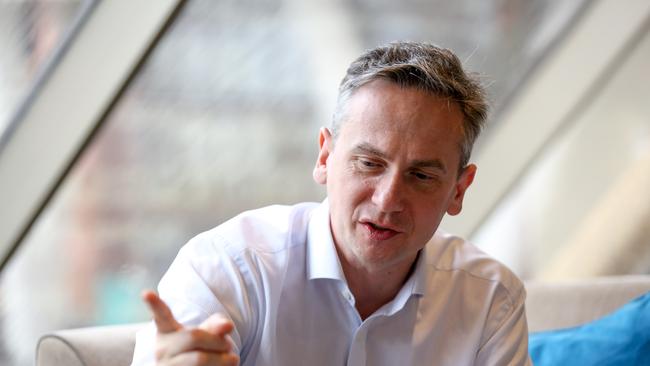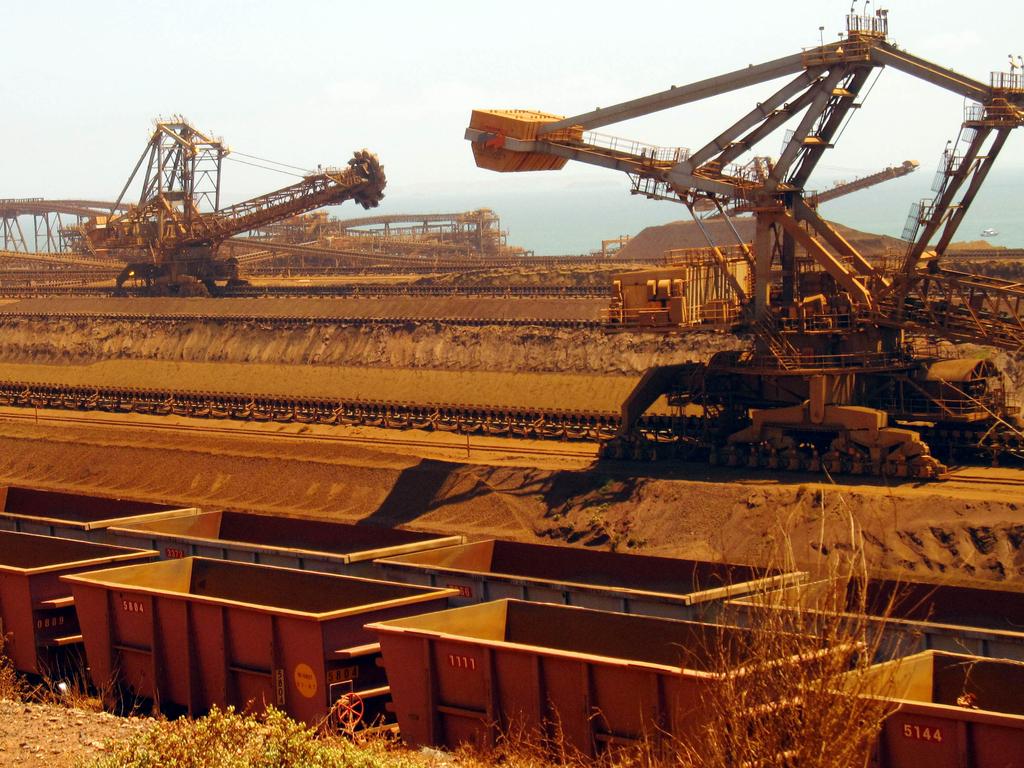Coronavirus: Rio Tinto boss Jean-Sebastien Jacques warns of volatility, nationalism
Flagging major global shifts, Rio Tinto’s CEO says lack of co-ordination between nations threatens pandemic recovery.

Rio Tinto chief executive Jean-Sebastien Jacques has warned the world faces a rising tide of nationalism in the face of the global coronavirus pandemic, saying trade tensions and a slow recovery outside of China could drag back even the industrial powerhouse.
Mr Jacques told the Bank of America Global Metals, Mining and Steel Conference on Tuesday night there is “absolutely no doubt” that volatility is the new normal on global commodity markets, joining BHP’s Mike Henry in flagging a tougher outlook for global miners as the world looks to exit the coronavirus crisis.
And while the Rio boss said, like his counterpart at BHP, he was confident China was recovering well from the initial impact of the coronavirus, he warned China’s growth could slow if the coronavirus hit the economies of its trading partners.
“Overall we feel pretty confident about China. Yes, full-year GDP growth may be impacted from the shock in the first quarter but what we see is the industrial part of the economy is clearly running nearly in a normal way, full speed,” he said.
But Mr Jacques said Rio was watching China’s recovery carefully for signals strong commodity demand was simply re-stocking of inventory, or “pulled-forward” demand based on an anticipated recovery in China’s export markets that may be slow to eventuate.
“What could be driving things the other way round is a potential drag on China’s economy because of weak exports, because the rest of the world is not (recovering) the same way,” he said.
And Mr Jacques warned the coronavirus crisis could lead to a fundamental shift in wealth distribution across the globe, warning against a lapse into nationalism as a result of the pandemic.
“The movement of people, and goods, will be restricted. As will the movement of data and it is likely that wealth distribution will fundamentally shift. So, significant uncertainties will exist over the short, medium and potentially, long term,” he said.
“From a response perspective, different countries are in different phases, and right now there is a lack of co-ordination between nations. And we are experiencing what we call, a realpolitik world, one with the potential for rising nationalism, increasing tensions – like the US-China relationship, and trade dislocations.”
The Rio boss said rising geopolitical tensions would undoubtedly impact on Rio’s business in the future, saying the miner would need to become “more agile in our approach to investments and also how we maintain access to markets and resources” to cope with a lower-growth environment.
“There is no doubt that geopolitics is going to be the dominant force in the foreseeable future — that may lead to trade friction, maybe increased focus on near-term economic outcomes and less international co-ordination. That will have a negative impact on the economy and trade growth,” he said.
Mr Jacques said it was too early to tell whether global economies could hope for a “V-shaped” recovery from the crisis, saying it would depend on the health response across the globe and how quickly a COVID-19 vaccine could be delivered.
“What is clear is that regardless of the shape of the recovery, the world will see slower GDP growth, and trade impacts. Both key drivers of the mining industry,” he said.
BHP boss Mike Henry had earlier delivered his own bearish view of the global outlook after COVID-19, saying a V-shaped recovery is looking “increasingly unlikely”.
Mr Henry said BHP’s “base case” suggested global growth would stall on the back of the coronavirus crisis, with most economies outside of China likely to struggle to get jobs and growth back on track in the wake of their lockdowns.
“By the end of 2021, our base case has the global economy roughly 4 per cent smaller than it would have been if COVID-19 had not happened,” he said.
“Re-establishing disrupted livelihoods will take time and consumption will be inevitably constrained, making a V shaped recovery increasingly unlikely.”
Mr Jacques flagged a rethink of Rio’s investment and growth strategy in the face of the uncertain outlook, saying patience would aid the company in the longer term, but flagging the possibility Rio could use the market downturn to snap up bargains if it sees them.
“We are patient and will make investment decisions based on market fundamentals which are clearly shifting. We know that adaptation is also thinking about our future portfolio,” he said.
“We are keeping a watching brief on M&A. Right now, the market is finding it difficult to value companies and the COVID-19 recovery pathway is not clear. Rio Tinto will only transact if an opportunity creates value. We remain patient but not complacent.”
Rio shares closed up $1.12 to $83.72, with BHP up 29c to $31.01.




To join the conversation, please log in. Don't have an account? Register
Join the conversation, you are commenting as Logout